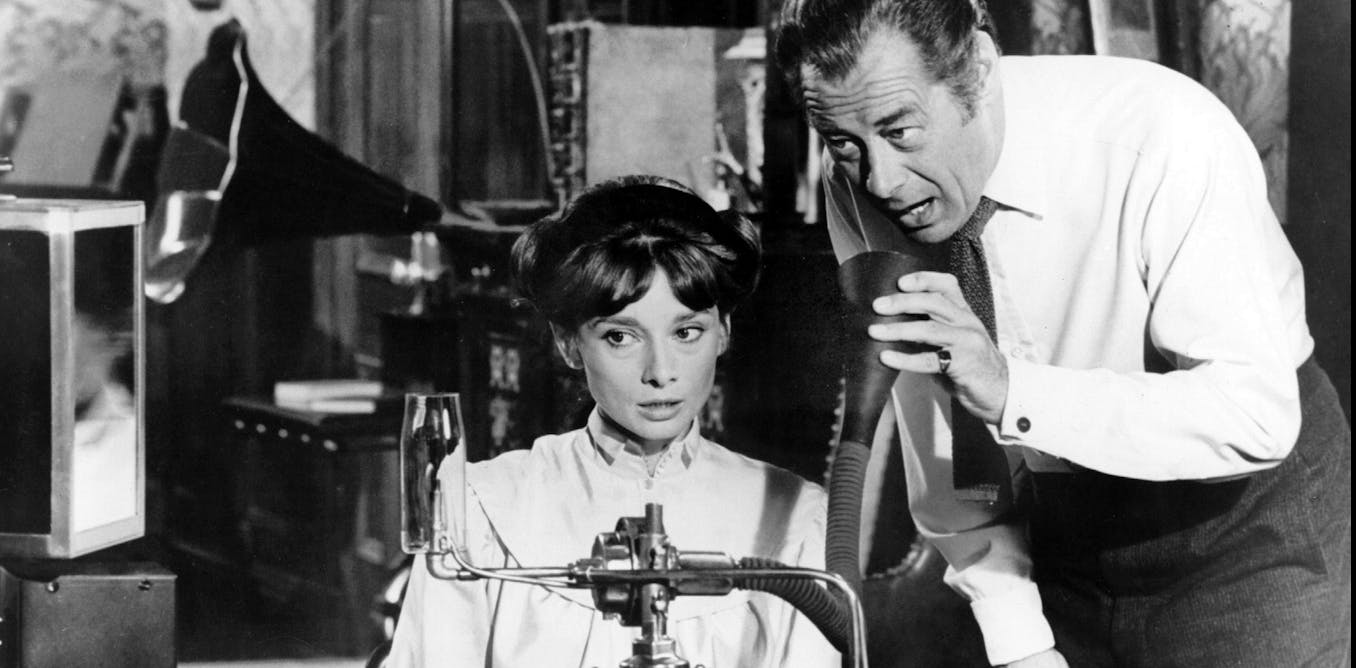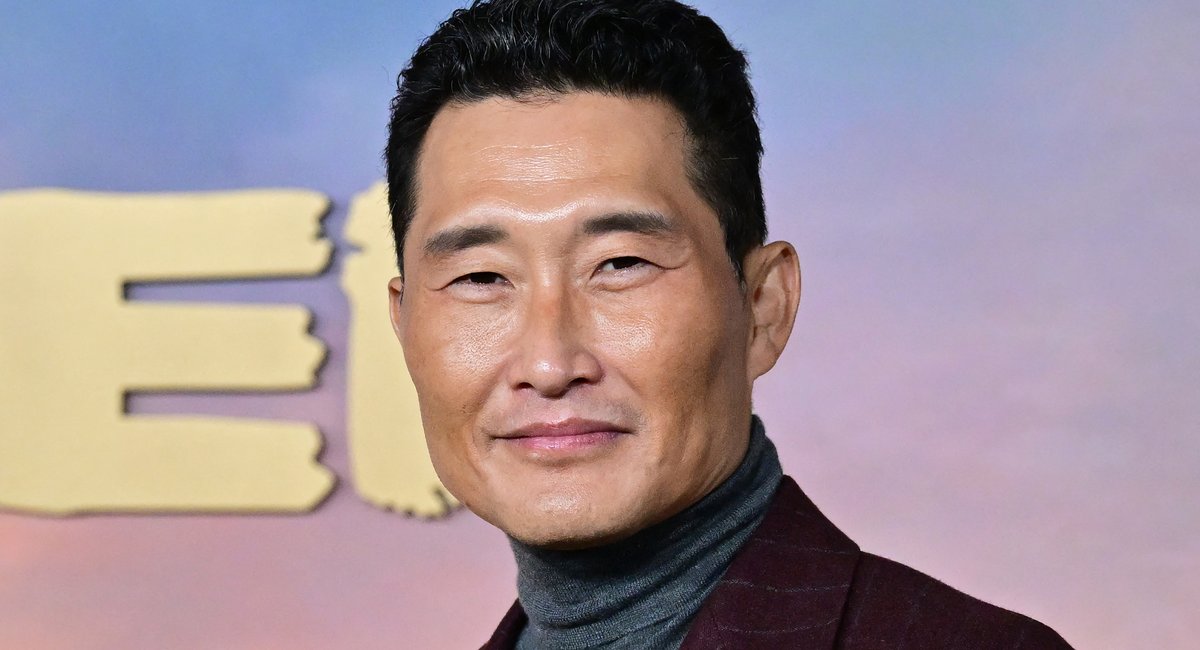This was all happening when you were starting out in your career. What did you think about the protests, Daniel?
Kim: I remember thinking that they were necessary because, as a young Asian actor, I knew what a dearth of opportunities there were for us. And when you have a chance to play a lead on Broadway, and that is no longer there for these kinds of reasons, it's problematic. At the same time, I also sympathize with my friends, who also said, “Well, when else are we going to be on Broadway in a supporting role, other than in a show like 'Miss Saigon?'”
It represents one of the few opportunities we have to do anything, even in the ensemble. I had some mixed feelings about it, but there's no question that David was on the right side of history there.
It was a big story. The point was made, and it was bypassed. The play came to Broadway. In response, you set out to write “Face Value,” with a white actor cast in the Asian role, and it was originally a farce. What part of it made you think, "Oh, I'll write a farce?"
Hwang: After the protest, which was sort of an early culture wars event, and being caught in the middle of that and arguably being a little bit canceled by mainstream media and opinion, I felt traumatized, and I needed to process that. So I decided to write a comedy of mistaken racial identity about the question: What does it really mean to play a race, to play one's own race? But I wrote it as a door-slamming farce and it became one of the biggest flops in Broadway history.
You say that with such joy, in a way. When you think about it now, would it be a flop now?
Hwang: Oh, yes. I can have some joy about it, because after 20 years, the story has a happy ending.
What?
Hwang: Well, in the sense of taking that concept again – a comedy of mistaken racial identity – and coming up 15 years later with “Yellow Face,” a different way to approach the same idea.
Daniel, in “Yellow Face,” your character is DHH. How would you describe him?
Kim: He is a man who is wrestling with this idea of who his authentic self is and what are the masks that he's developed over the years to try and protect who he really is, and what does it require for those masks to come off? Even though he has the best of intentions, there are other parts of his personality that serve as obstacles to him being his true self.
What are DHH's flaws?
Kim: I would say a little bit of hubris, a little bit of narcissism, a little bit of inability to acknowledge mistakes until the consequences get so high that he's forced to acknowledge them.
Hwang: I feel like Daniel's being a little kind because I'm also in the studio, but I would say a lot of hubris, really, and really trying to protect his reputation as an Asian American role model after making mistake after mistake after mistake in this play.
Are you really self-aware? I mean, when you write something like this, you had to write your own flaws into your play.
Hwang: There are a lot of autobiographical works. It's just that usually, the author doesn't name the main character after themselves. In this case, I found, well, once I did that, I really needed to make him a character. So yes, there are ways in which he's like me, and then there are things that happen because it helps the plot and it helps the character have an arc and some redemption at the end.
Kim: I give David a lot of credit for not making himself a very shiny hero in his own work. He's very human. More than human. I'm not sure what that means exactly.
People get it.
Kim: He presents himself as the butt of many of the jokes in this piece. It takes a very healthy sense of self to allow people to laugh at you openly.
Apparently, this script has 30 minutes knocked off the length from the original 2007 version. Intermission is gone. What did you do?
Hwang: After a certain amount of time has passed, both Leigh Silverman, the director, and I were able to look at the piece with a little more objectivity. We had originally intended it to be an intermission-less evening, but the show was just too long. And I think most of the changes that have happened between 2007 and the '24 version just involved cutting and shaping and polishing. There was stuff that we got rid of and then we didn't miss it.
In “Yellow Face,” DHH casts a white actor to be the lead in his play. It's pre-Internet, so he can't really check him out. Why do you think DHH goes along with the white actor? Why doesn't he just say, "Wait. No, we need to stop."
Kim: I think for him, there's too much at stake. As David mentioned, there’s protecting his reputation, especially as someone who protested the casting of a white actor previously. And again, hubris, this idea that he can get away with it if he chooses to make these choices. I think we've all been in positions where we have to make choices and sometimes the honest choice is the one that comes at the greatest cost.
Well into the play, DHH is having a fight with the white character, and you call him a racial tourist. What does that mean to you?
Hwang: Ethnic tourist. The line is, “You come in here with that face of yours and everyone falls at your feet, you ethnic tourist.” In the play you have the white actor, Marcus. David gives him an Asian identity, which is invented, but then Marcus runs with that and becomes an Asian activist of the sort that David is not willing or able to be at that point in the story. David is saying he just skims the cream and gets to have the advantages without any of the real consequences.
Kim: Which I think is very funny, too, because he's criticizing Marcus in that moment for a mantle he could be taking, and he's criticizing the very creature he created.
It’s interesting because the white actor is saying, “I like being part of something.” "As a 'Eurasian' actor, I can be part of this." When you think about it, is he wrong?
Kim: No, absolutely not. I think that's what makes this play so human and universal. We all want to find a place of belonging. We all want to be validated in some way and just because you're of one particular race or another race doesn't change that need. We all are looking for our home and our community, and I think that's what makes Marcus sympathetic.
Hwang: I would also add it's complicated because his need to be part of the community, or his justification, is based on a lie. He's not actually a mixed-race Asian. Hopefully, it gives the audience stuff to chew over and discuss after the show.
I wrote “Rachel Dolezal” across the top of my notes. She was a white woman who portrayed herself as a Black woman, headed the local NAACP, and there was a big hoo-ha. I'm wondering what you thought about that.
Hwang: It happened after the original production, and so I guess I thought in the original play, “It seems likely to me that this sort of thing is going to happen as we move forward as a more multicultural and more diverse society, and that passing might end up going both ways.” So yes, when Rachel – I don't even know how to pronounce her last name — came around, and there are a couple of others that have come up since, particularly in the publishing world, it's been, I don't know, either gratifying or horrifying.
Kim: By the way, you don't have to not be a member of a particular ethnic group to start using the emphasis on identity and inclusion as a mask. There are a lot of Asian Americans who never cared about this issue until very recently, and then suddenly they've taken up the mantle and the question is: How genuine is that or how much is that just going along with a rising tide?
Then to add another layer to it, in your cast, you have people playing against type. You have a woman playing a man. Marinda Anderson plays Jane Krakowski. Kevin del Alguila plays Ed Koch. How does this set up the audience to maybe understand the play better?
Hwang: Well, in the original production, the casting was essentially binary. It was just Asians and white people. And because society has moved on in some good ways, by the time we get to 2024, we wanted this production to be more inclusive. Then there was the question of: Okay, what does it mean – I mean, now we're pretty used to actors of color playing white people.
“Hamilton” certainly has mainstreamed that, but what will it mean for actors of color to play other characters of color, not of their own ethnicity? We try to be very mindful about the choices that we made. But to me, in a good and fun way, maybe it pushes the envelope a little more and it's something that people can talk about, too.
Daniel, what is DHH having a hard time understanding about his dad?
Kim: Well, I think as a second-generation immigrant or a 1.5-generation immigrant, there are expectations, I think, speaking as a 1.5-generation, there are expectations that we could have of our country that sometimes recent immigrants do not have. What I mean by that is, for instance, my parents, when they came here, they thought of themselves as visitors to this country. They didn't think to question the issues that are problems in the country as much as to say, “We're lucky to be here. Take what you're given and work hard. Put your head down.”
As a person who's grown up with the issues in our country, there's more of a sense of ownership, and I'll just speak for myself. And so when I see problems, I want to raise my voice and say, “This place is not perfect. I 100% choose to live here and love this country, and at the same time, I can be a voice that helps shape this country.”
When I went to the theater on Saturday, I saw a lot of Asian Americans in the audience everywhere I went. What did they get to see?
Kim: First of all, they get to be entertained and I love that most of all because our job, first and foremost, is to entertain. When there are people in the audience who wait for me backstage or outside the stage door and they say to me, "This is the first Broadway show I've ever seen." That is one of the biggest compliments that I can receive because it tells me that we're expanding the number of people who come to the theater.
I think that couldn't be more important for a new generation of theatergoers to know that that's part of the entertainment landscape. I would also say that I think it's really important for young Asian Americans in particular because this show is about our history. And those who don't know who David Henry Hwang is and don't know what the controversy around "Miss Saigon" was, it's important that they do because very often we are considered the silent minority, that we do not speak up for ourselves.
We did have pioneers all throughout history who did that and there are very necessary chapters of our history that are included in this play. By the way, this is not just Asian American history, this is American history. I think if it spurs people to say, “Who was Wen Ho Lee?” then I think we're serving a dual purpose.
Did you want to respond?
Hwang: Well, it's needless to say, we are very fortunate to have Daniel, because there are a fair number of Asian Americans – and people in general – who come to see Daniel. Broadway is looking for new audiences, and that isn't going to happen as long as we keep appealing only to a narrow slice of the demographic. Pieces like “Yellow Face” but also pieces about other communities that have been marginalized in the entertainment world, are so important in expanding our audiences as well as our definition of what constitutes the American theatrical canon.
"Yellow Face" is playing at the Roundabout Theater on 42nd Street until Nov. 24.










